3D glasses, a health risk ?
Posted on: May 11, 2010
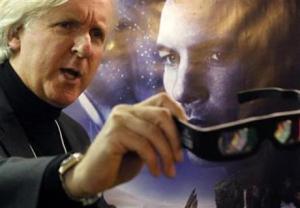 Avatar, Alice, My Bloody Valentine, Shutter Island… We have lost count of the number of movies available in 3D. We have also lost count of the number of glasses distributed in the theatres. 7000 of them have recently been confiscated by the Italian Health Ministry for “heath reasons.” Officials claimed that they were not cleaned properly between the screenings and could spread germs, infections and louse.
Avatar, Alice, My Bloody Valentine, Shutter Island… We have lost count of the number of movies available in 3D. We have also lost count of the number of glasses distributed in the theatres. 7000 of them have recently been confiscated by the Italian Health Ministry for “heath reasons.” Officials claimed that they were not cleaned properly between the screenings and could spread germs, infections and louse.
But that is not all. American professor Martin Banks -university of Berkeley, California- just published a study about the “optical conflict” caused by 3D glasses. By changing the relationship between the eyes and the brain, they can cause headaches, blurred vision and nausea.
The huge success of Avatar -which had made 1.859 billion dollars six weeks after its release- should discourage the cinematic industry from spreading the news.
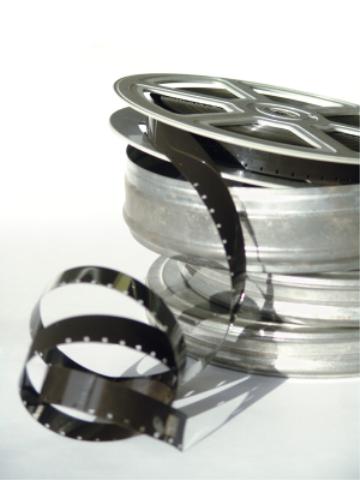 Don’t worry, another great cinematic event is coming up. On March 20th the second edition of the CUNY Film Festival at the Macaulay Honors College will be held.
Don’t worry, another great cinematic event is coming up. On March 20th the second edition of the CUNY Film Festival at the Macaulay Honors College will be held.
In 2008, Hunter film student Daniel Cohen had made a short movie and planned to show it at a CUNY Film Festival, when he realized that the event didn’t exist. Supported by HBO and the Mayor’s Office of Film, Theatre and Broadcasting, he thus created the CUFF in order to « foster a sense of community and promote cross-campus projects ».
The CUNY Film Festival is a great opportunity for film students not only to share their passion with other campuses, but also to step a foot in the cinematic industry. This week, three of last year’s awarded films are going to be broadcasted on Thirteen.
« Our sponsors have been very generous to us, says Dilber Shatursun, the Festival’s representative at City College. Guests speakers representatives, who support the public system, will attend the ceremony. »
Around eighty students of the seven City University Colleges have already submitted their films for the 2010 edition. Miles Trahan, a Hunter college student, is one of them. « I see every festival as an opportunity to get my work seen, he said. Really all I want at this point is to get my films before a fresh audience and gauge reactions. » Miles Trahan submitted In Dreams, a short movie that immerses us in the dark universe of the storyteller’s imagination, where everything becomes possible. « I had made other movies before, but I chose to submit this one because it was recently made within the CUNY Hunter film program. »
To find out whether this film or others will be successful at the Festival, rendez-vous on March 20th !
Wikipediadventure
Posted on: November 5, 2009
According to a survey made in 2007 by the non-profit agency Pew Internet & American Life Project, more than a third of American internet users (36%) consult Wikipedia, the free encyclopedia. De facto, 8% of the American population refers to Wikipedia as a source of information.
The average Wikipedia user is a young man, between 18 and 29 years-old, with a college degree. In the academic world, there has been a controversary about the reliability of the online encyclopedia. In 2008, the librarian of a school in New Jersey posted in the computer room the following notice “Just say no to Wikipedia”…
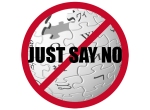 …Taking over Nancy Reagan‘s anti-drugs campaign in the 80’s.
…Taking over Nancy Reagan‘s anti-drugs campaign in the 80’s.
But paradoxically, the survey showed that the more educated people were, the more they used this encyclopedia. To try and understand why the community is so popular among the youth, we have asked a 21 years old student to tell us about her experience with the online database.
Ten Rules For I-land
Posted on: October 22, 2009
 #1 : Bring the necessary tools
#1 : Bring the necessary tools
As if you were going on an expedition, you need to be prepared. Going on the internet requires you to speak a specific language, made of strange words, like “hyperlink”, “wiki”, “blog” or “rss”… To help you understand the online jargon, here is a useful dictionary, called Netlingo.
#2 : Safety First
Watch out, the World Wide Web is Wild… And some people take this opportunity to misbehave. So be careful who you talk to, and try to control the information that you release.
#3 : Keep yourself posted
Internet is the land of innovation. New things are constantly happening out there. So don’t be afraid to break your own habits, and remember that three years ago, you didn’t know what “facebook” was… (and now you spend 2 hours a day on it…)
#4 : Have team spirit
Remember that web 2.0 is collaborative…
#5 : Get lost, be surprised..
#6 : ..But erase you traces
#7 : Share things
#8 : Beware of MediaAddictions
Go out in the real world sometimes
#9 : Post comments on my blog !
Any idea on the 10th rule ?
To e-book, or not to e-book ?
Posted on: October 22, 2009
 Is it the question ?
Is it the question ?
It was for Les Echos, the first French newspaper to launch an online version of the economic daily on an e-book, in 2007. The device, made by IRex, came with a subscription to Les Echos’ website (365 euros/year), for the modest sum of 600 euros.
Despite its price, Les Echos’ offer was promising : the reader had the opportunity to read the newspaper on a digital book, that did not consume any traditional ink or paper. The digital text could be search automatically and crossed-referenced using hyperlinks. With an e-book, no need to stop by a newsstand : from 6am to 21 pm, the users could download the latest version of the diary.
A video presentation was made by Les Echos‘ team to introduce the technology.

Unfortunately,by the end of 2008, only 1000 subscribers adopted the device, forcing the media company to quit the adventure. The happy few expected other French newspapers to launch their e-book version… But they didn’t… Contrary to their European neighbours, like the Flemish newspaper De Tijd.
Today, if you want to read a newspaper on an e-book, the market offers many different possibilities. You can pick IRex’s version, but their is also Amazon’s Kindle, or Sony’s eReader RS-505…
For now, I would maybe choose Amazon’s kindle, as I was seduced by this presentation made by Ben Higginbotham on Twin City Live
Things I didn’t know…
Posted on: October 11, 2009
… About the web.
Netvibes. I hadn’t heard of this website until recently thanks to our e-learning English class. Netvibes is not just a website. It is a platform that does not generate its own content but agregates many contents from other websites, like blogs, social networks or even your email box.

As this technology is based on RSS-feeds , it allows every user to keep up with the last updates of the websites he usually visits. And as each netvibes page is personalized, through customized tabs, feeds and modules, it is representative of web 2.0.
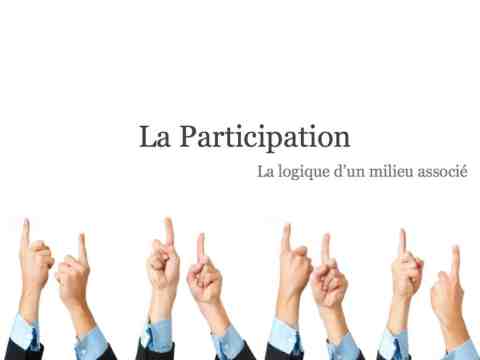
E-learning
Have you heard of this new way of teaching and learning ? As the “E” stands for “electronic”, e-learning designates a web-based and distanced education, sometimes difficult to define as it refers to many different practices. As the technologies evolve, e-learning methods change.
We had a chance to interview a few e-learners on that matter, and they listed a few arguments for or against this practice :
Wikis. Wiki is the Hawaiien word for fast. Ward Cunningham, the developper of the first wiki software in 1995, was indeed a fast-thinker. He invented a software that allowed every internet user to contribute to the content of a same website.
Thus, he renewed the old Enlightenment‘s project to create a giant collaborative encyclopedia.
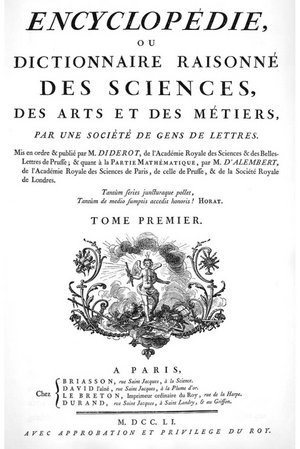 But this time, with a significant change : simple references would become hyperlinks.
But this time, with a significant change : simple references would become hyperlinks.
What I didn’t know about wikis, was the many other ways in which they could be used, such as corporate intranets, personal note taking, and every type of knowledge management system. Here’s a good example on how wikis could be used to organise…. a camping trip !
CyberCrime
Posted on: October 1, 2009
Salami attack. That does not consist in throwing salami at your neighbours, it is actually a cybercrime. A financial one, to be more specific. The key is to make the alteration so small that in a single case it would go unnoticed.

A bank employee, for example, could steal only a few cents from each of his clients and make a significant amount of money at the end.
You may wonder why such name was given to these attacks. It comes from another expression, “salami slicing”. As salami slices are really thin, these actions are too small to be seen. These tactics were obviously not born with the cyberspace. In politics, the term has been used since the 1940’s to refer to a process of threats and alliances used to fight the opposition.
Transparency
Posted on: September 24, 2009
Transparency. As the internet seeps into our homes, as we fill out more and more online forms to buy airplane tickets, our favourite singer’s album, or just to connect to the latest trendy social network, one question remains : where does the information go ? Who can have access to our details ?
“Happy Birthday, Marc. On December 2008, you will be 29. You don’t know me, it’s true, but I know you very well. You are not lucky, Marc. You were the first one who was chosen to be Google portrayed by “Le Tigre”. It’s very simple : we choose an anonymous person and we tell everything we know about his life thanks to the tracks that he left, voluntarily or not, on the internet… (…) After all, it is your fault, you should have been careful. ”

This is what Marc L. could read last year in “Le Tigre”, a french magazine. This article was written to warn us about our lives transparency on the internet.
Online orchestras
Posted on: September 20, 2009

Among the various possibilities that the internet offers, one in particular has recently caught my attention.
I was asked to think about “the impact of the internet on world music”. As the legislation on that matter becomes stricter and stricter every day – « Hadopi2 » law passed recently in France – one would immediatly think about the negative effects of the internet on music.
It is true that by allowing consumers to download their favourite singer’s album for free, the internet has shattered music’s former business model. The web has put music copyrights in the spotlight, as lawyers from all around the world were trying to come to an international agreement.
As the media often focus on the downsides of this technology, today I would like to point at a great innovation that is going to please the music-mads of the world : online orchestras.
The idea of an online orchestra is not new, but at first it was for professionals only. It required specific satellite links that allowed a singer in Paris to record a CD with a band located in San Fransisco. Patricia Kaas CD was made that way. A new technology called MIDI (Music Instrumental Digital Interface) has made things easier for non specialists. By downloading electronic scores as files, MIDI managed to speed up the process.
A few music schools have taken this opportunity to communicate with their equivalents all around the globe. The World Band Project was created, and brought together American, Corean and German participants in a single workshop. Teachers and students could be thousands of kilometers away from eachother, and play the same orchestra.
I paid a special attention to this example, as my school is allowing us to live a similar experience in our English class. It is called e-learning. Our teacher doesn’t have to physically be in the class for us to learn. We haven’t played in a virtual band yet, but it could be an idea.
To conclude this article, I would like to post a link to a very interesting concert, that has been organized by YouTube in 2008. The aim of this initiative was to select 80 musicians among thousands of candidates in order to invite them to play at the Carnegie Hall, in New York. Musicians had to upload a video of themselves playing the Eroica Internet Symphony, a play written for the occasion by Tan Dun.
In this case, the orchestra is not virtual as all the participants came in person to play it. But it is definitly linked to the internet, as this medium made it happen. “Classical music is federative, because it is not limited by the language barrier”, said Emmanuelle Flahaut Franc, head of the communication of YouTube. If classical music is an international language, today the internet allows us to speak it.